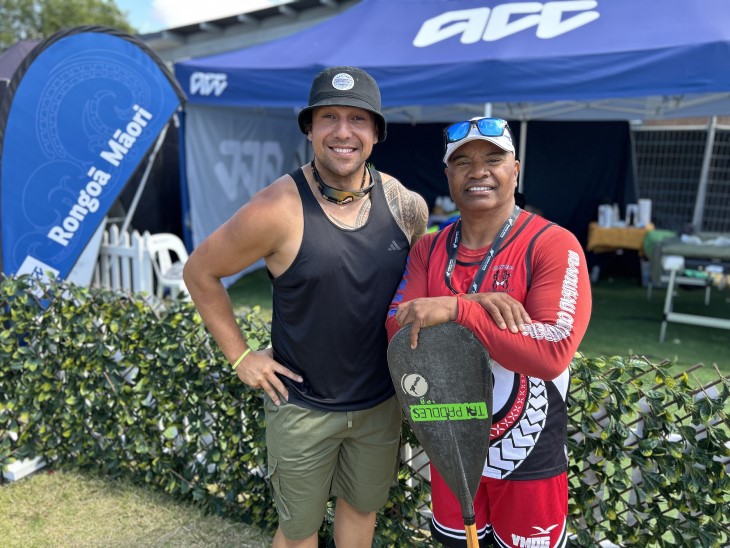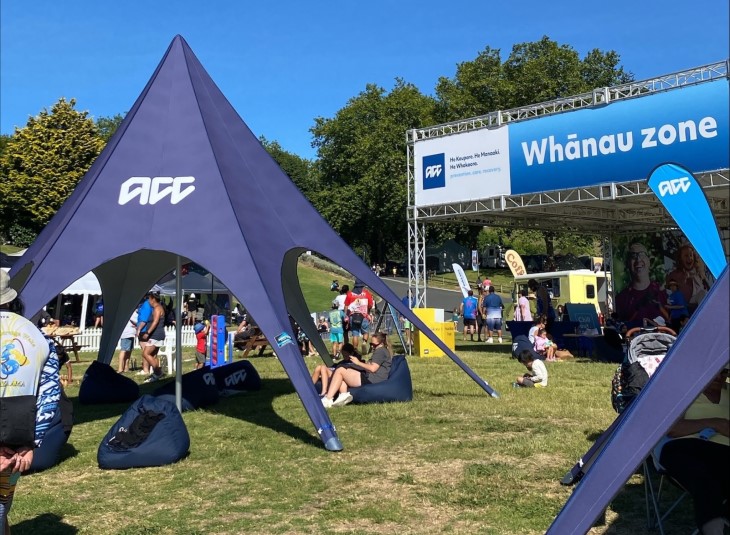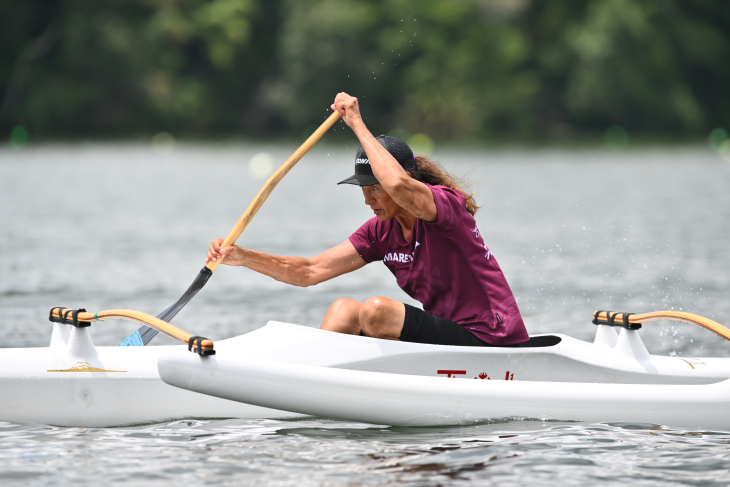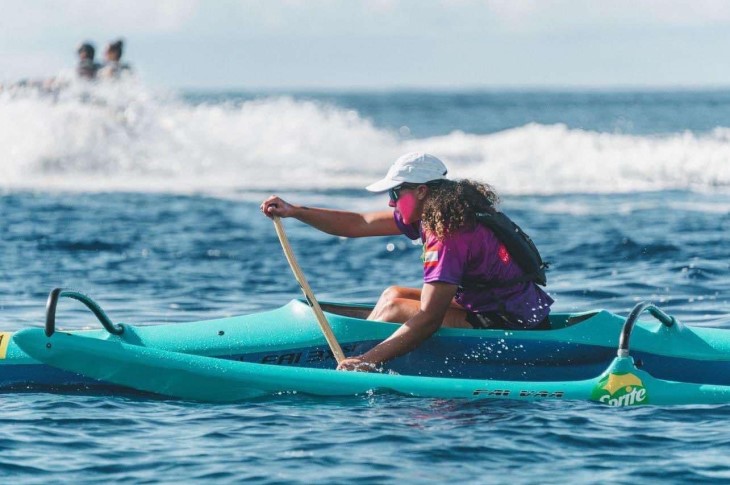High praise for rongoā Māori at waka ama

The growth of our rongoā Māori (traditional Māori healing) service has been further fostered at the Waka Ama Sprint Nationals, with practitioners on site to provide support to competitors and whānau.
Waka ama veteran Walter Togiamua came off the water and straight into a rongoā Māori session.
And his body thanked him for it.
At 60, he’s doing well to be competing mostly injury-free, taking part in the ACC-supported Waka Ama Sprint Nationals at Lake Karāpiro this month.
Walter travelled from Māngere in South Auckland to paddle in his 20th sprint nationals.
He’s had an operation on his shoulder in the past but – by being proactive with his strength, conditioning and recovery – he’s able to paddle even stronger than before.
“The rongoā Māori service helps your body turn up the next day,” Walter says.
“I’ve just finished doing a session with a rongoā practitioner and it really helps with my shoulder.”
‘A huge step forward for our whānau’
Rongoā Māori has been offered as a rehabilitation option by ACC since June 2020 and the growth in that time has been significant, with the service supporting more than 15,000 claims.
Rongoā Māori is traditional Māori healing. It includes mirimiri and romiromi (bodywork), whitiwhiti kōrero (support and advice) and karakia (prayer).
While ACC’s Rongoā Māori Service is available to kiritaki (clients) throughout the motu (country), according to the latest data from 7 January 2025, kiritaki in Waikato are accessing it the most (5,454 claims since June 2020).
This is followed by Bay of Plenty (1,767), Auckland (1,493), Wellington (1,355) and Gisborne (1,184).
Walter says it’s invaluable to his wellbeing.
“I have a physio at home but the rongoā Māori service gives me the spiritual wairua I need,” he says.
“It’s the whole package and a huge step forward for our whānau Māori to experience. We need more of this at our Māori and Pasifika events, so our families understand the importance of it.”

Rongoā practitioner Giovanni toI Mata, left, with Walter Togiamua.
A healing option for all
Giovanni tol Mata was one of the rongoā practitioners at the Waka Ama Sprint Nationals, working out of ACC’s Whānau Zone.
He says rongoā Māori ensures whānau have access to a service they would have traditionally received.
“Rongoā Māori is that whole-person level of care,” says Giovanni, from Kirikiriroa (Hamilton).
“It’s the most organic way of healing. Sometimes as a practitioner I might just be sitting and listening accordingly because that’s healing too.”
Rongoā Māori is whatever is connected to you, he says.
“It might be mirimiri, romiromi or sometimes it might just be going for a walk – whatever feels organic to you and whatever brings that therapeutic effect to you at that given time.
“We can’t ignore the concept that wairua is a real thing. We believe wairua is everywhere and if we’re not addressing that, then we’re missing the vital component of wellbeing.”
Anyone was welcome to access the rongoā Māori services being provided at the sprint nationals.
“It doesn’t matter whether you're racing or a spectator, anyone can come through and experience what Māori would have experienced centuries ago,” Giovanni says.
“It’s phenomenal to put on such a showcase for our Māori and to show everyone this is available.”

Improving health outcomes for Māori
Our research shows Māori are more likely to experience a serious injury than non-Māori but are less likely to make an injury claim.
“We’re focused on ensuring Māori are aware of the support they’re entitled to following an injury,” says Andy Milne, ACC Deputy Chief Executive of Strategy, Engagement and Prevention.
“Community events like waka ama help us to raise awareness and build understanding around ACC services that improve access and health outcomes for Māori.”
Supported by mana whenua Ngāti Korokī Kahukura and Ngāti Hauā, and run by Waka Ama New Zealand, the Waka Ama Sprint Nationals took place this month at Lake Karāpiro in Cambridge.
Find out more on the Waka Ama New Zealand website.





